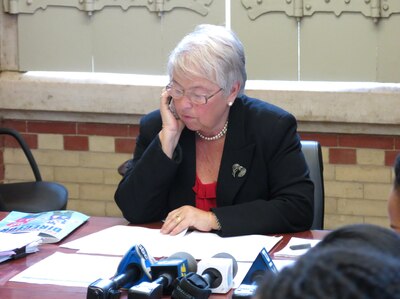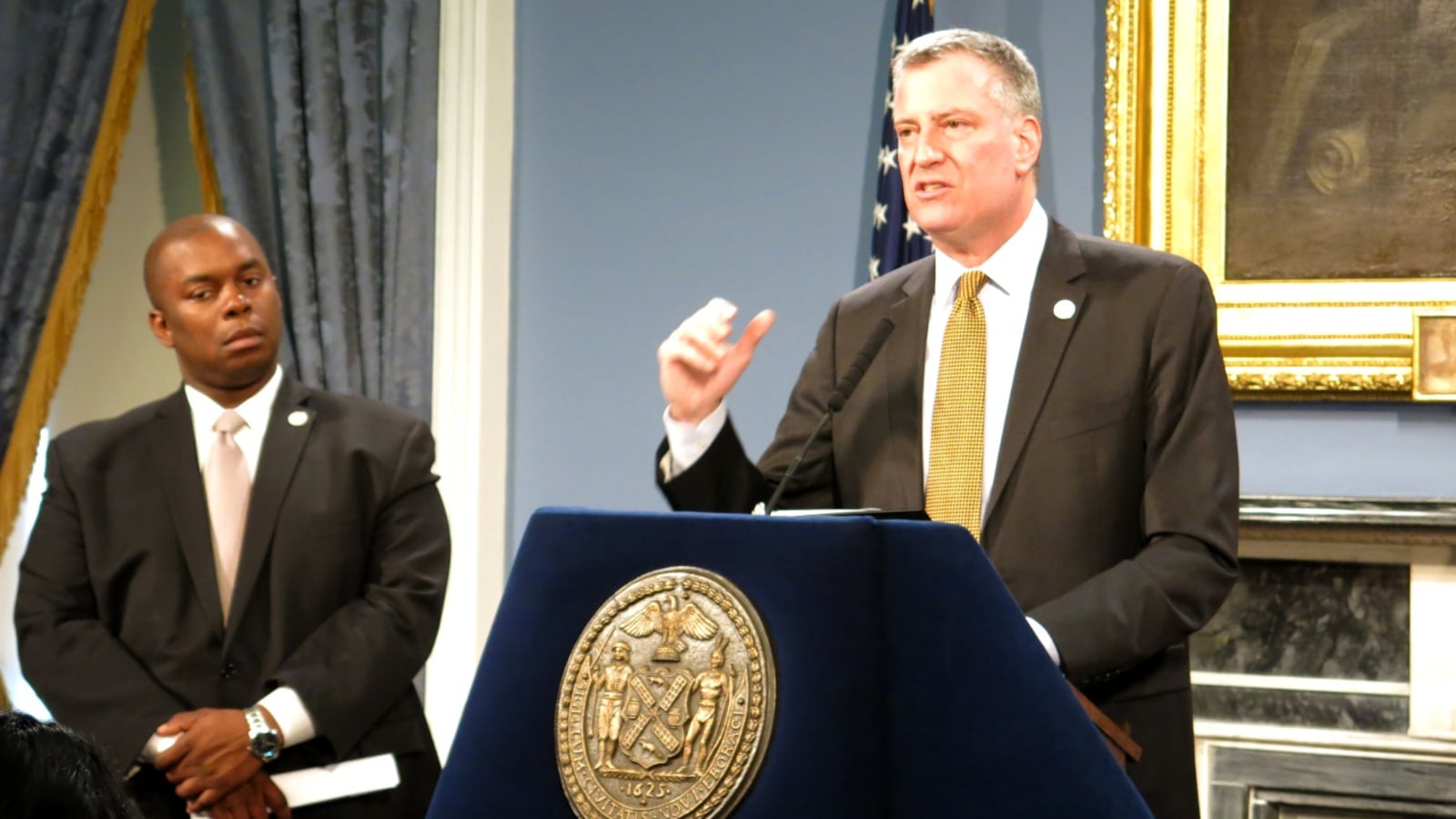The intensifying mayor-versus-governor debate about the best way to pay for vast pre-kindergarten and after-school expansions had an immediate impact Monday when the city announced that it had pushed back the pre-K enrollment deadline until after the state budget is settled.
The announcement came a day before Mayor Bill de Blasio — along with busloads of supporters — will travel to Albany to lobby lawmakers to back his plan to fund the expansions with an income-tax surcharge on the city’s high-earners. But the tax is opposed by Republican lawmakers and the governor, who wants to pay for the expanded programs with state money rather than a new tax.
Department of Education officials said Monday that the pre-K enrollment deadline had been moved from April 1 to April 23, three weeks after the state budget is due, to enable the city to adjust the number of available pre-K seats based on how much money becomes available for the expansion. In the meantime, families may only apply for existing seats, said Sophia Pappas, executive director of the department’s office of early childhood education, “since we don’t have confirmation about the funding yet.”
Meanwhile, at a press conference tied to the release of a new report detailing the city’s plan to more than double the number of middle school after-school programs, de Blasio said he can only carry out the plan if the state meets his budget demands.
“We can’t achieve this vision for after-school without dedicated, sustained and sufficient resources,” de Blasio said, adding, “That’s why we continue to fight in Albany.”
Governor Andrew Cuomo has proposed spending $1.5 billion over five years to expand pre-K statewide and $720 million over the same period for a statewide after-school expansion. But de Blasio wants $530 million annually just for the city’s expansion plans, and notes that Cuomo’s after-school funds would not kick in until 2015, a year after the city hopes to add the new programs.

On Monday, de Blasio said he hoped to meet with Cuomo when he arrives in Albany, but that no meeting was currently scheduled. De Blasio said he expected the new after-school report to “move” lawmakers in the way a similar pre-K policy paper had.
De Blasio and his allies, who have long planned for Tuesday’s pre-K push, will now share the spotlight in Albany with another contingent of fired-up advocates: charter school supporters.
The Success Academy charter network — which lost public space for three planned schools in a city decision last week — will send busloads of students to Albany Tuesday to seek lawmakers’ support for school facilities and funding. A city pro-charter parent group said it expects hundreds of parents to attend as well, and a regional charter school advocacy organization said supporters from 90 charter schools across the state would also rally at the capital.
A coalition of groups that support de Blasio’s pre-K plan gathered in New York Monday for what they called a “unity rally,” and called out Eva Moskowitz, the head of Success Academies, and others for their “divisiveness.” At the press conference, de Blasio brushed off suggestions that the charter school rallies could distract from his pre-K lobbying.
“I think there’s too much of a demand for pre-K and after-school at this point for any other issue to muddy the waters” in Albany, he said.
In a letter Monday to the mayor, Moskowitz called any suggestion that the pro-charter school rally in Albany is intended to detract from the pre-K expansion plan “utterly false.”
“We support pre-K and we are going to march in favor of good educational opportunities for ALL children,” she wrote.
Also on Monday, Schools Chancellor Carmen Fariña helped phone public-housing residents to encourage them to enroll their four-year-old children in one of the 24,000 pre-K slots available in public schools. (To apply for free pre-K seats administered by community-based organizations, families must submit separate applications directly to those centers.)
During one call, Fariña told a child who answered the phone, “I’m the lady in charge of all the schools in New York City. Is your mother in the house?”
Later, when Fariña was asked by a reporter whether the source of pre-K funding — either from the mayor’s proposed tax or from the state — would impact the expansion, she suggested that question was premature.
“We’ll cross that bridge when we come to it,” she said.


